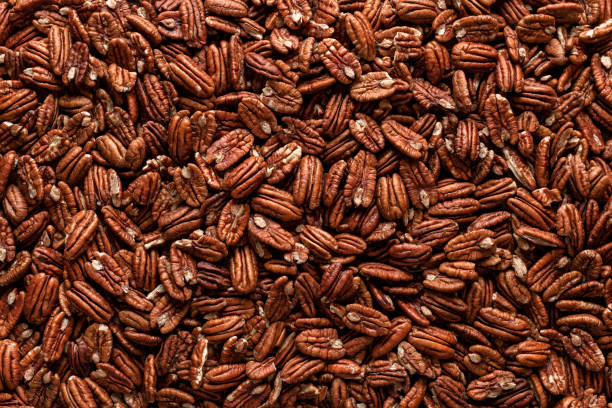Unveiling the Health Benefits of the Underappreciated Nut: The Pecan
A human body is a complex machine, requiring proper fuel to function optimally. While we often hear about superfoods like avocados, blueberries, and kale, there's a lesser-known but equally beneficial food that's often overlooked - the humble pecan. This article delves into the health benefits of pecans and why this nut deserves a place in your daily diet.

Pecans: A Nutritional Powerhouse
Originating from Mexico and the southern United States, pecans were a staple food for indigenous cultures long before Europeans arrived. The pecan tree, a member of the hickory family, produces nuts high in healthy fats, fiber, and antioxidants.
Modern research shows that pecans are a nutritional powerhouse. They contain more than 19 vitamins and minerals including vitamin A, vitamin E, folic acid, calcium, magnesium, phosphorus, potassium, several B vitamins, and zinc. One ounce of pecans provides 10 percent of the recommended daily fiber intake.
How Pecans Contribute to Heart Health
Studies show that pecans can help reduce LDL cholesterol levels, which is known as the ‘bad’ cholesterol. They are packed with monounsaturated fats, including oleic acid along with phenolic antioxidants which help reduce the risk of heart disease.
Pecans also contain magnesium, a mineral known for its anti-inflammatory benefits. Inflammation is one of the key drivers of heart disease. Regular consumption of pecans, therefore, can be a beneficial addition to a heart-healthy diet.
Pecans and Diabetes Management
Pecans are low in carbs and high in fiber, making them an excellent food choice for people with diabetes. The American Diabetes Association recommends eating foods with monounsaturated fats, like pecans, to improve your blood sugar control.
In addition to their low glycemic index, pecans’ high fiber content can help control blood sugar levels by slowing the rate at which sugar is released into the bloodstream.
The Pecan’s Role in Weight Management
Despite being high in fats and calories, pecans can be included in a weight management diet. The fiber in pecans helps make you feel full and satisfied, reducing the tendency to overeat. Also, nuts like pecans are more “thermogenic” than other types of food, meaning your body burns more calories to digest them.
Aiding Digestive Health with Pecans
Pecans are high in dietary fiber, which aids in digestive health by promoting regular bowel movements. Regular consumption of pecans can help prevent constipation and promote a healthy digestive system.
Quick Pecan Facts & Wellness Tips:
- Pecans are a rich source of energy, providing 690 calories per 100g serving.
- They contain no cholesterol and are rich in monounsaturated fats like oleic acid, beneficial for heart health.
- Pecans are an excellent source of Vitamin-E, especially rich in gamma-tocopherol, providing about 25g per 100g. Vitamin-E is a powerful lipid soluble antioxidant required for maintaining the integrity of cell membranes and skin by protecting from harmful oxygen-free radicals.
- Pecans can be enjoyed straight from the shell, used in baking, or added to salads, yogurt, and granola for a nutritional boost.
- Store pecans in an airtight container in the refrigerator to keep them fresh for longer.
In conclusion, the pecan is a versatile and nutritious nut that offers numerous health benefits. While it’s not as famous as some other nuts, it’s just as deserving of a spot in your daily diet. By incorporating pecans into your meals, you’re not only adding a delicious crunch but also boosting your overall health. Remember, even small changes to your diet can lead to significant improvements in your health and well-being. So, why not start by giving pecans a try?




